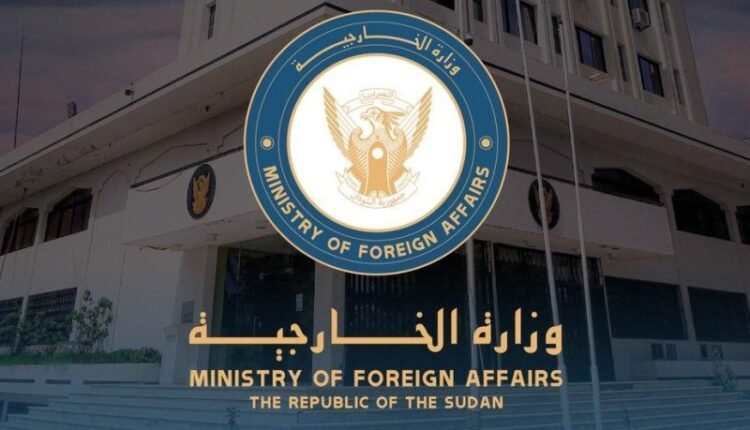Sudan Rejects UN Mission’s Recommendations and Submits Its Response to the President of the Human Rights Council

Port Sudan – Geneva – Sudanhorizon
The Sudanese government has announced its rejection of the UN Fact-Finding Mission’s report and its recommendations, reaffirming its refusal to cooperate with the mission.
In a statement released on Saturday, the Sudanese Ministry of Foreign Affairs criticised the behaviour of the UN mission. The statement pointed out that the mission, which the Human Rights Council formed in October 2023, preempted the new session of the council, set to begin on September 10, by publishing its report and holding a press conference on it before the council had the chance to review it—despite the council being the body that established and mandated the mission.
Meanwhile, Sudan’s Attorney General and Chairman of the National Committee to Investigate Crimes Committed by the Rapid Support Forces Militia, Omar Tayfour, has arrived in Geneva, Switzerland, to participate in the 57th session of the Human Rights Council and to present Sudan’s response to the UN mission’s report.
According to information obtained by the Sudanhorizon news site, the Sudanese government has submitted its response, prepared by the National Committee, to the President of the Human Rights Council. The report, which is set to be presented by the Attorney General on Tuesday, has been filed with the President of the Council in all UN official languages.
The Ministry of Foreign Affairs statement described the mission’s actions as lacking professionalism and independence, asserting that it is a political body rather than a legal one. The statement emphasised that no African or Arab nations supported the mission’s formation, aligning with Sudan’s position since the outset.
The statement also argued that the mission’s recommendations exceed its mandate and align with international powers in the UN Security Council, known for their hostility towards Sudan. The Ministry accused the mission of engaging in propaganda before the Human Rights Council’s deliberations, aiming to influence member states to extend the mission’s work for political purposes.
In its report, the mission detailed crimes committed by the Rapid Support Forces, including war crimes, crimes against humanity, sexual violence, slavery, child recruitment, and ethnic-based targeting of civilians. Yet, the mission called for an arms embargo that would also affect the Sudanese Armed Forces, which are defending civilians from these atrocities, while recommending the formation of an international force to protect civilians. The Ministry of Foreign Affairs highlighted the contradiction in calling for an arms embargo on the national army while proposing a global force whose effectiveness and timing remain uncertain.
The statement expressed astonishment at the mission’s recommendation to impose an arms embargo on the national army, which is constitutionally and morally tasked with protecting the country and its people in line with international law. It questioned whether the proposed international force would even be capable of covering the 14 states claimed to be affected by the conflict and whether it, too, would be subject to the same arms embargo.
The Ministry concluded that the mission’s recommendations serve the interests of Sudan’s adversaries and will not be realised. It reaffirmed that the protection of civilians is a top priority for the Sudanese government, which is why it signed the Jeddah Declaration on May 11, 2023, and proposed practical mechanisms for monitoring its implementation. However, the international community has ignored these efforts and turned a blind eye to the Rapid Support Forces’ systematic targeting of civilians and civil institutions. According to the Ministry, the Jeddah Declaration remains the most suitable framework for civilian protection.
The statement also emphasised that, in line with its commitment to combating impunity, the Sudanese government established the National Committee to investigate crimes and violations of national and international humanitarian law as an independent body. The committee has made significant progress, submitting two reports to the Human Rights Council and preparing a third interim report for the upcoming session. The Ministry stressed that the Human Rights Council’s natural role is to support national judicial processes, adhering to the principle of complementarity rather than imposing external mechanisms. Based on this, the Sudanese government rejects the Fact-Finding Mission’s recommendations in their entirety and reiterates its refusal to cooperate with the mission.
Shortlink: https://sudanhorizon.com/?p=1476

